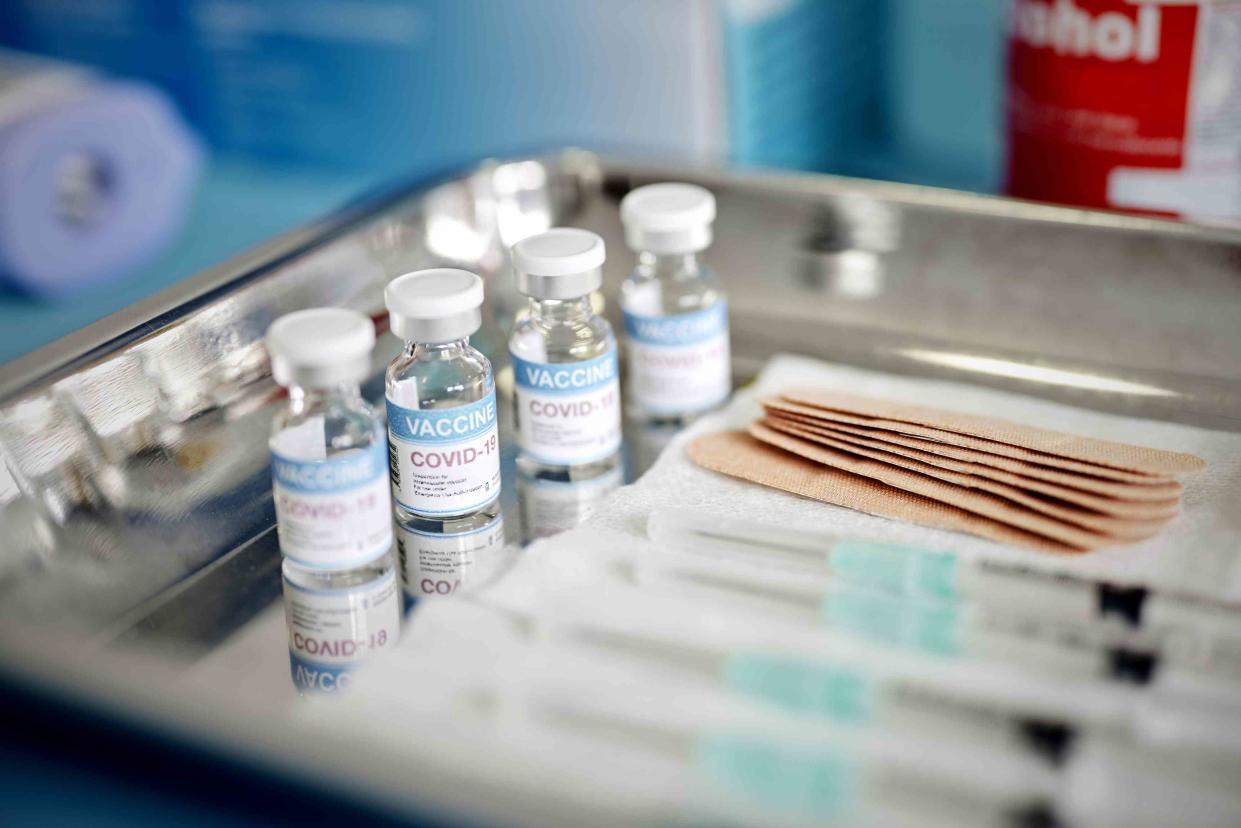New COVID-19 Vaccines Should Protect Against BA.2.86 and EG.5, Early Research Shows

Fact checked by Sarah Scott
Key Takeaways
Updated versions of COVID vaccines from Pfizer and Moderna earned FDA approval on Monday.
While initially designed to target June's dominant variant of XBB.1.5, research shows these vaccines should protect against newer variants, like BA.2.86, as well.
The FDA has not yet greenlit an updated version of Novavax's COVID vaccine.
The Food and Drug Administration approved new COVID-19 vaccines from Pfizer and Moderna today. The reformulated vaccines were designed to better protect against currently circulating variants.
The new shots were designed to target Omicron XBB.1.5. Though that variant is no longer dominant in the U.S., the new monovalent vaccines can also protect against more current variants, including BA.2.86 and E.G.5, according to the companies.
BA.2.86, nicknamed Pirola, contains more than 30 mutations. Fewer than 1% of U.S. COVID-19 cases are attributable to BA.2.86 and the CDC said the uptick in cases is not being driven by the variant. Still, some experts remain concerned that so many mutations could help the variant to slip past the antibodies generated by the updated vaccine.
Related: Why BA.2.86 Stands Out From Other COVID Variants
Two other Omicron variants—EG.5 (dubbed 'Eris') and FL.1.5.1—have gained a foothold in the U.S. in recent months. Together, those variants were responsible for about 29% to 44% of the U.S. COVID-19 cases in the last two weeks of August.
How Well Will the New Shots Work?
Moderna tested its updated vaccine in a group of 20 people who got the shot as a fifth dose, after their primary series and two booster shots. In a study that has not yet undergone peer review, the company said that those participants had levels of protective antibodies against BA.2.86, EG.5.1, and FL.1.5.1 that were similar to those generated against the targeted variant, XBB.1.5.
Researchers also noted 8.7 times more BA.2.86-neutralizing antibodies among participants after they received the updated vaccine. There was also an 11-fold increase in antibodies that can neutralize EG.5.1.
Related: A Timeline of COVID-19 Variants
In a statement emailed to Verywell, Pfizer said that its updated vaccine generated “a strong neutralizing antibody response” against Omicron variants, including EG.5.1 and BA.2.86.
A pre-print study showed that Novavax’s updated vaccine induced a similar protective response against several prominent variants, including XBB.1.5 and EG.5.1. The FDA did not authorize the new Novavax formulation in its Monday announcement.
In a series of pre-print studies, researchers found BA.2.86 to be slightly better at slipping past immune defenses, but slightly worse at spreading than other related variants. While it’s about 20 times less infectious than EG.5.1, early lab tests show that BA.2.86 had an easy time skirting past the antibodies in the blood of people who had breakthrough infections with one of the XBB variants, virologist Kei Sato shared on Twitter.
Takeaway
The World Health Organization (WHO) hasn’t yet named BA.2.86 as a variant of concern. If that changes, the variant could get a new Greek letter to distinguish it from other versions of Omicron.
About 97% of Americans have some immunity to COVID-19 due to prior vaccinations or infections, the CDC estimates. Even if the new vaccines aren’t enough to block infection from newer variants, they’ll likely protect people from serious illness, the agency said.
A panel of advisors to the Centers for Disease Control and Prevention (CDC) met on September 12 to discuss the new vaccines and make clinical recommendations. With the CDC signing off, shots from Moderna and Pfizer could soon be available.
What This Means For You
Pending CDC signoff, updated vaccines from Moderna and Pfizer will soon be available to protect against newer COVID variants. While they were created to target XBB.1.5, research suggests they offer adequate protection against more recent variants, like BA.2.86 and EG.5.
The information in this article is current as of the date listed, which means newer information may be available when you read this. For the most recent updates on COVID-19, visit our coronavirus news page.
Read the original article on Verywell Health.

